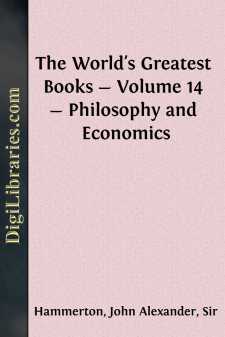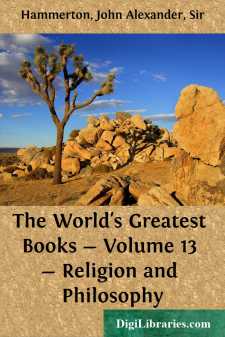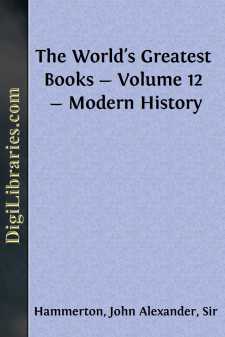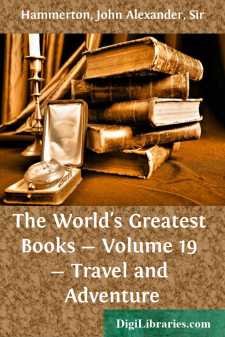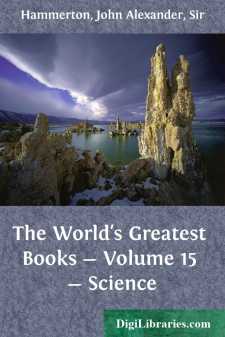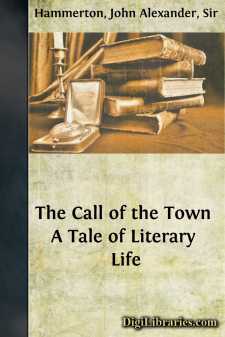Categories
- Antiques & Collectibles 13
- Architecture 36
- Art 48
- Bibles 22
- Biography & Autobiography 813
- Body, Mind & Spirit 142
- Business & Economics 28
- Children's Books 17
- Children's Fiction 14
- Computers 4
- Cooking 94
- Crafts & Hobbies 4
- Drama 346
- Education 46
- Family & Relationships 57
- Fiction 11829
- Games 19
- Gardening 17
- Health & Fitness 34
- History 1377
- House & Home 1
- Humor 147
- Juvenile Fiction 1873
- Juvenile Nonfiction 202
- Language Arts & Disciplines 88
- Law 16
- Literary Collections 686
- Literary Criticism 179
- Mathematics 13
- Medical 41
- Music 40
- Nature 179
- Non-Classifiable 1768
- Performing Arts 7
- Periodicals 1453
- Philosophy 64
- Photography 2
- Poetry 896
- Political Science 203
- Psychology 42
- Reference 154
- Religion 513
- Science 126
- Self-Help 84
- Social Science 81
- Sports & Recreation 34
- Study Aids 3
- Technology & Engineering 59
- Transportation 23
- Travel 463
- True Crime 29
John Alexander Hammerton
John Alexander Hammerton (1871-1949) was a prolific British editor and writer, best known for his work on encyclopedic reference works and literary collections. Among his notable achievements is editing the comprehensive "Harmsworth's Universal Encyclopaedia" and the popular "The Outline of History" by H.G. Wells. Hammerton's contributions to literature and reference books were widely recognized, and his works remain influential in the fields of history and biography.
Author's Books:
Sort by:
HEGEL The Philosophy of History Georg Wilhelm Friedrich Hegel was born on August 27, 1770, at Stuttgart, the capital of Würtemburg, in which state his father occupied a humble position in government service. He was educated at Tübingen for the ministry, and while there was, in private, a diligent student of Kant and Rousseau. In 1805 he was Professor Extraordinarius at the University of Jena, and in...
more...
Religion THE APOCRYPHA Apocrypha is a Greek word, signifying "secret" or "hidden," but in the sixteenth century it came to be applied to a list of books contained in the Septuagint, or Greek translation of the Old Testament, but not in the Palestinian, or Hebrew Canon. Hence, by theological or bibliographic purists, these books were not regarded as genuine Scripture. That view was...
more...
SAMUEL ELIOT History of the United States Samuel Eliot, a historian and educator, was born in Boston in 1821, graduated at Harvard in 1839, was engaged in business for two years, and then travelled and studied abroad for four years more. On his return, he took up tutoring and gave gratuitous instruction to classes of young workingmen. He became professor of history and political science in Trinity...
more...
Travel and Adventure SIR SAMUEL BAKER The Albert N'yanzaI.—Explorations of the Nile SourceSir Samuel White Baker was born in London, on June 8, 1821. From early manhood he devoted himself to a life of adventure. After a year in Mauritius he founded a colony in the mountains of Ceylon at Newera Eliya, and later constructed the railway across the Dobrudsha. His discovery of the Albert N'yanza...
more...
Science JOHN MILNE BRAMWELL Hypnotism: Its History, Practice and Theory John Milne Bramwell was born in Perth, Scotland, May 11, 1852. The son of a physician, he studied medicine in Edinburgh, and after obtaining his degree of M.B., in 1873, he settled at Goole, Yorkshire. Fired by the unfinished work of Braid, Bernheim and Liébeault, he began, in 1889, a series of hypnotic researches, which, together...
more...
THOMAS LOVE PEACOCK Headlong Hall The novels of Thomas Love Peacock still find admirers among cultured readers, but his extravagant satire and a certain bookish awkwardness will never appeal to the great novel-reading public. The son of a London glass merchant, Peacock was born at Weymouth on October 18, 1785. Early in life he was engaged in some mercantile occupation, which, however, he did not follow...
more...
CHAPTER I "THE PROUD PARENT" If you happen to be riding a bicycle you arrive somewhat unexpectedly in the little Ardenshire village of Hampton Bagot, and are through it in a flash, before you quite realise its existence. But in the unlikely event of your having business or pleasure there, you approach the place more leisurely in the carrier's cart from the little station which absurdly...
more...
SIR WALTER SCOTT Quentin Durward In mentioning "Quentin Durward" for the first time Scott speaks of himself as having been ill, and "Peveril" as having suffered through it. "I propose a good rally, however," he says, "and hope it will have a powerful effect. My idea is a Scotch archer in the French King's guard, tempore Louis XI., the most picturesque of all times."...
more...
ALPHONSE DAUDET Tartarin of TarasconAlphonse Daudet, the celebrated French novelist, was born at Nimes on May 13, 1840, and as a youth of seventeen went to Paris, where he began as a poet at eighteen, and at twenty-two made his first efforts in the drama. He soon found his feet as a contributor to the leading journals of the day and a successful writer for the stage. He was thirty-two when he wrote...
more...
MAXWELL GRAY The Silence of Dean MaitlandMary Gleed Tuttiett, the gifted lady who writes under the pseudonym of "Maxwell Gray," was born at Newport, Isle of Wight. The daughter of Mr. F.B. Tuttiett, M.R.C.S., she began her literary career by contributing essays, poems, articles, and short stones to various periodicals. With the appearance of "The Silence of Dean Maitland," in 1886,...
more...


